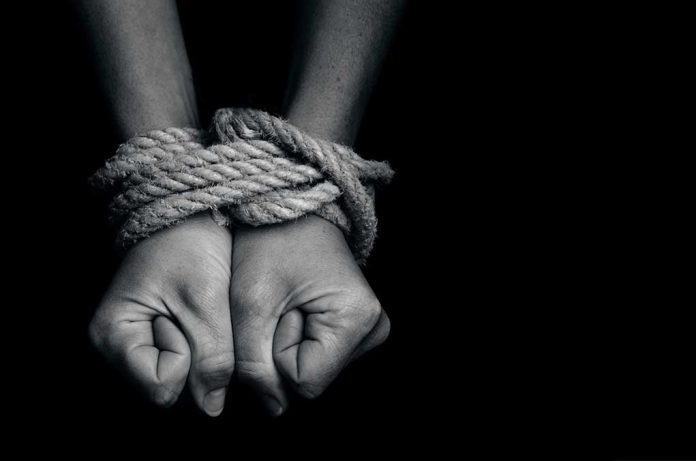
Hamas has declared that hostages held in Gaza will be returned “in coffins” if Israeli raids persist, intensifying the already dire situation.
At a Glance
- Relatives of hostages protest at Prime Minister Netanyahu’s home, demanding action.
- Shelly Shem-Tov calls for public support to pressure the government for a deal.
- Recent government decisions have toughened potential hostage release guidelines.
- Hamas attack on October 7 led to around 1,200 Israeli deaths and 250 hostages taken.
- Israel’s retaliation has resulted in over 1,100 Palestinian deaths.
Family Members Demand Government Action
Relatives of hostages held by Hamas in Gaza recently protested outside Prime Minister Benjamin Netanyahu’s home in Caesarea, criticizing the government’s perceived inaction. They demanded prompt intervention to secure the release of their loved ones. Shelly Shem-Tov, the mother of Omer, a hostage taken during the Re’im music festival on October 7, called upon the public to pressure the government for a deal. Omer suffers from asthma and celiac disease, making his captivity particularly harrowing.
“Get up off the sofa and come and support us in Caesarea, at the prime minister’s house. Stand with us. The families of the abductees are your family,” Shelly Shem-Tov urged.
Government Measures and Public Response
Prime Minister Netanyahu has reportedly toughened guidelines for any potential hostage release deal, causing a division within the war cabinet. This move comes despite a successful truce in November that saw the release of 105 hostages, in exchange for Palestinian prisoners. Critics argue the tough stance endangers the lives of hostages still in Gaza. Families accuse the government of abandoning their loved ones and question the reliance on military pressure.
“You have two options: either make a deal, or leave the house and say ‘Carmit, I choose to sacrifice your brother’s life because the defeat of Hamas is more important to me,’” said Carmit Palty Katzir, whose mother was recently released, but whose brother remains captive.
Israel has recently secured the delivery of essential medications into Gaza for hostages with chronic illnesses, but this action has not quelled the public outcry for more decisive measures to ensure the safe return of all hostages.
Hamas’s Role and Historical Context
Hamas has a violent history of opposition to Israeli rule, consistently employing aggressive tactics for over three decades. Their latest attack on October 7 resulted in around 1,200 deaths in Israel and approximately 250 hostages taken. This attack marked the deadliest incursion by Hamas into Israeli territory. Israel’s retaliation has been severe, leading to over 1,100 Palestinian deaths, with the conflict showing no signs of a swift resolution.
Analysts suggest that Hamas may have underestimated the severity of Israel’s response. Tahani Mustafa, a Palestinian analyst, remarked, “I don’t think anyone really knows what the endgame is at the moment.” The conflict’s escalation poses significant risks for both parties and involves a complex network of international relations and local grievances.
Hamas warns Israel: Your captives may return to you as corpseshttps://t.co/BSBTyh6UzE
— Press TV 🔻 (@PressTV) May 28, 2024
Potential for International Intervention
The ongoing conflict has highlighted the acute human suffering on both sides, intensifying calls for international diplomatic intervention. A sustained peace would require mediating between the conflicting parties and addressing the root causes of the violence. The continuation of hostilities only risks further tragic outcomes, making diplomatic pressure and negotiations increasingly crucial.
The potential for a ground offensive by Israel into Gaza poses a significant threat of a prolonged and bloody conflict. Hamas’s preparedness for extended warfare and potential support from allies like Iran and Hezbollah add layers of complexity to the situation. The stakes are high, and the urgency for a diplomatic resolution cannot be overstated.
Conclusion
The statement by Hamas, threatening to return hostages “in coffins,” reflects the severe extremities of the ongoing Gaza conflict. The international community must prioritize diplomatic measures to mediate the situation and work towards a sustainable peace to prevent further loss of life. As families of hostages continue to demand action from the Israeli government, global attention remains focused on resolving this humanitarian crisis.
Sources
- ‘They will return home in coffins’: Hostages’ families rally at PM’s home, demand deal
- What was Hamas thinking? For over three decades, it has had the same brutal idea of victory
- For years, Netanyahu propped up Hamas. Now it’s blown up in our faces
- The Stark Reality of Israel’s Fight in Gaza
- Israel is at war with Hamas. Here’s what to know
- In the Cities of Killing
- Hamas appears to show dead bodies of two hostages after warning Israel
- More captives are freed as Israel and Hamas agree to extend their truce in Gaza
- Hamas accepts Gaza cease-fire; Israel says it will continue talks but presses on with Rafah attacks
- 38 Israeli families mourn while Hamas holds their loved ones’ remains







